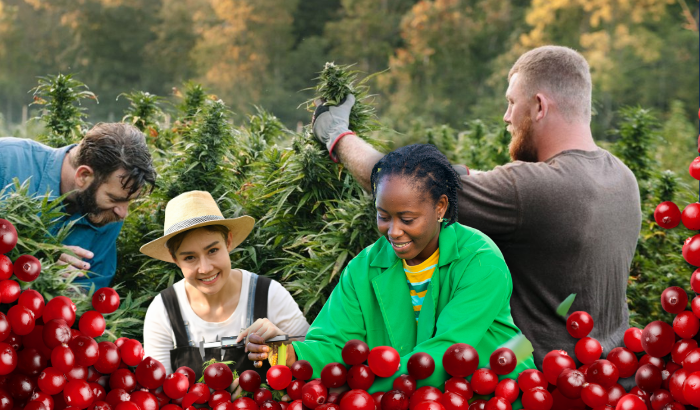
So far, the state’s attempt to spur cranberry coop-style cultivations has yielded lackluster results
The Massachusetts Cannabis Control Commission’s Craft Cooperative license designation was envisioned as a model for small agricultural businesses. Regulators thought that it could function like the system in which farmers pool resources to grow and harvest cranberries, but in practice cannabis coop attempts have gotten stuck still in bogs, thwarted by red tape and financial hurdles.
Commissioners briefly addressed concerns with these licenses during their marathon July 13 meeting that lasted more than five hours. The CCC currently has two pending applications for Craft Cooperatives and four issued provisional licenses. According to commission records, though some of those have been approved for more than a year, none of the entities have received final approval or commenced operation.
All members of a licensed Craft Cooperative must have resided in Mass for at least one year. They may not have a controlling interest in any other cannabis operations in the state, and at least one member must have filed a Schedule F tax form in the previous five years to denote themselves as a commercial farmer.
“I think folks have looked at [the Craft Cooperative] license type for some advantages,” CCC Executive Director Shawn Collins said during the body’s brief discussion on the topic last week. He added that the designation could mean “lower fees” and “the ability to scale and share resources,” but also carries the potential burden of “having several locations,” which “means several HCAs [and] several leases”—“all of [which] need to be scrutinized.”
Ideally, Craft Cooperatives would have farmers pooling resources while cultivating at separate sites under a single license. Together, they can grow up to 100,000 square feet of combined canopy, and would have lower licensing fees than comparably sized companies in other categories. But so far, that potential hasn’t been reached.
“My anecdotal evidence suggests that a lot of [cannabis] Craft Cooperatives have pivoted to outdoor grows,” Collins said, noting how outdoor cultivations also have lower licensing fees. He added, “It’s more viable to go it alone and still get some of the advantages outdoors grows bring you.”
As for success stories—none from the weed industry came to mind. “The best [non-cannabis] craft cooperative model I could probably reference is Ocean Spray, but this is also a Schedule 1 drug,” the executive director said. Ocean Spray was referenced several times during the meeting, but mostly in the context of the complicated difference between selling cranberries and cannabis. The partnership was originally formed in the Bay State in 1930, when three cranberry farmers teamed up to sell their product on a national market. The cooperative’s footprint would grow to include members in six states, as well as in Chile and Canada.
Prior to the legalization of adult-use cannabis in Mass, cranberries were the commonwealth’s leading agricultural product. Last year, cannabis surpassed cranberries in sales here for the first time.
Closing out their quick talk on the topic, CCC members recognized a need to possibly revisit the parameters of Craft Cooperative licenses, but did not schedule a date for subsequent discussion. Commissioners also considered possible ways to leverage the license type or something like it to lift up Disadvantaged Business Enterprises applicants stuck in the pipeline.
CCC Chair Shannon O’Brien said, “There might be an opportunity—for us to take a look at the Craft Cooperative license and … those 400 Social Equity and Economic Empowerment applicants that are in the provisional stage.”

























